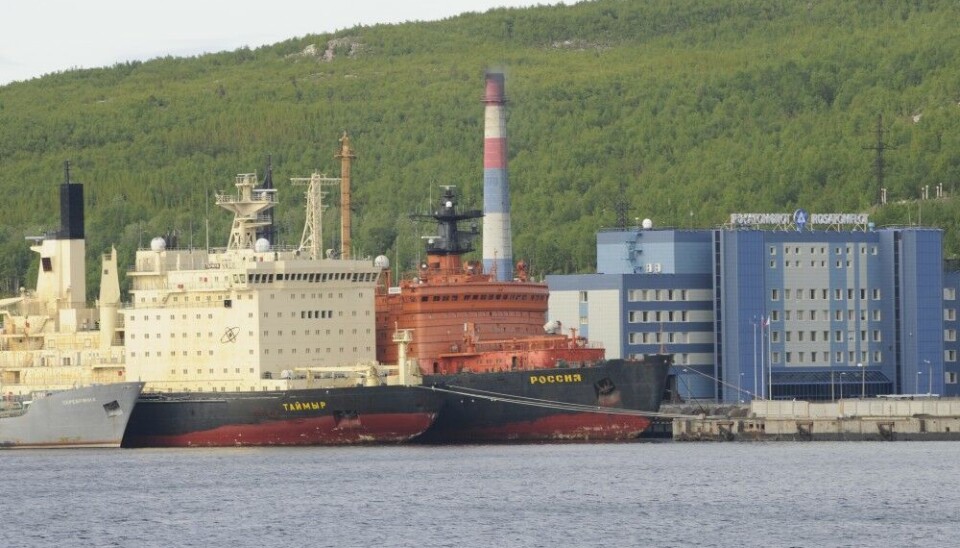
Atomflot added to U.S. sanctions list
FSUE Atomflot, the maintenance base for Russia’s fleet of nuclear-powered icebreakers, can no longer buy products from, or do business with, U.S. or European Union entities.
Located two short kilometers north of Murmansk, FSUE Atomflot was for three decades a major receiver of grants from Norway, the United Kingdom, the United States and the European Union. Millions of Euros dedicated to nuclear- and radiation safety projects have helped Russia improve infrastructure and technology at this civilian site that partly has served as a transshipment hub for spent nuclear fuel from dump sites on the Kola Peninsula.
The United States on Friday announced FSUE Atomflot being added to the sanctions list, a move following a similar decision previously undertaken by the European Union in February.
Washington says it will “continue to take action against Russia until it ends its brutal and illegal war against Ukraine.”
Russia has in recent years invested big in construction of a new generation of powerful nuclear-powered icebreakers. In the summer season, when there is less sea-ice along the Northern Sea Route, these vessels undergo maintenance, repair and periodically change the uranium fuel elements from the reactors at Atomflot.
Rosatom, the state-owned nuclear corporation of which Atomflot is a subsidiary, has so far not commented on how the new sanctions would impact the long-term plans on boosting shipping along the Northern Sea Route.
Developing the Northern Sea Route is “extremely important to us,” Dictator Vladimir Putin stressed at a Governmental meeting on May 17th. Arctic shipping and infrastructure were on the agenda.
At the same meeting, Minister for the Development of the Far East and the Arctic, Alexei Chekunkov, could tell Putin that cargo transport plans stay on track in accordance with plans.
“While a number of unfriendly states are trying to revise their previously announced plans for transit along the Northern Sea Route, we are seeing a growing interest in using the route from China, India and countries in South East Asia,” Chekunkov said according to the transcripts from the meeting in the Kremlin.
The Government confirmed a go-ahead on building the sixth and seventh icebreaker of the new Project 22220 class. So far three vessels of the class are in operation, while two more are under construction at the Baltic yard in St. Petersburg.
Each of the new icebreakers is powered by two RITM-200 reactors that need maintenance at Atomflot.
Much of the radiation monitoring equipment at the base is of Western origin. With sanctions imposed, spare parts or software upgrades are no longer available.














